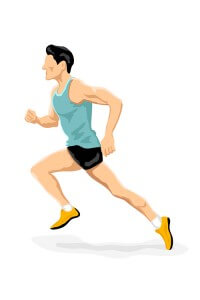 There is a common assumption that people who are on a vegan diet don’t get enough nutrients to be professional athletes or have an advanced level of physical activity. This assumption is actually based on the recurrent habit of famous athletes to go on a plant-based diet but switching back to eating meat, which reinforces the message that it is not good for your health.
There is a common assumption that people who are on a vegan diet don’t get enough nutrients to be professional athletes or have an advanced level of physical activity. This assumption is actually based on the recurrent habit of famous athletes to go on a plant-based diet but switching back to eating meat, which reinforces the message that it is not good for your health.
However, athletes like Brendan Brazier are a living example of how this switch is completely possible to have a high fitness level on a plant-based diet.
Why is it difficult to be a vegan athlete?
The difficulty of this issue lies primarily in switching to a vegan diet. It is difficult especially that most vegetables and legumes generally have higher percentages of carbs and lower percentages of protein and hence the same quantity of food gives the recipient less nutrients and energy. Furthermore, you can be getting lower levels of calcium and sodium that are crucially important for athletes. Those deficiencies are at the root of three major problems.
• Constant feeling of hunger: this is often the result of low protein and dietary fats. Our bodies need essential fats that are usually gained from dairy and other animal product but are more difficult to get from vegetables.
• Muscles cramps: this is usually the result of low calcium and sodium levels, two minerals that vegans tend to have a deficiency in.
• Low energy: this can be due to the lack of iron and other minerals. Hard physical activity depletes iron and can cause anemia.
What should an athlete do to address those problems?
While this can be a challenge, it is certainly a solvable problem despite the need for some persistence.
• Constant feeling of hunger: make sure to eat protein at every meal and for snacks. Other important ingredients include nuts and seeds oil that can help get all the essential oils and fats that the body needs.
• Muscle cramps: start adding salt to one or two meals each day to compensate for the loss of sodium and as for calcium it is important that you start eating almonds, bananas and green vegetables on almost every meal to compensate for the loss. Try supplements if you need to.
• Low energy: can be fought by eating beans, nuts and dried fruits that are high in iron. It is also a good practice to regularly your iron levels.

